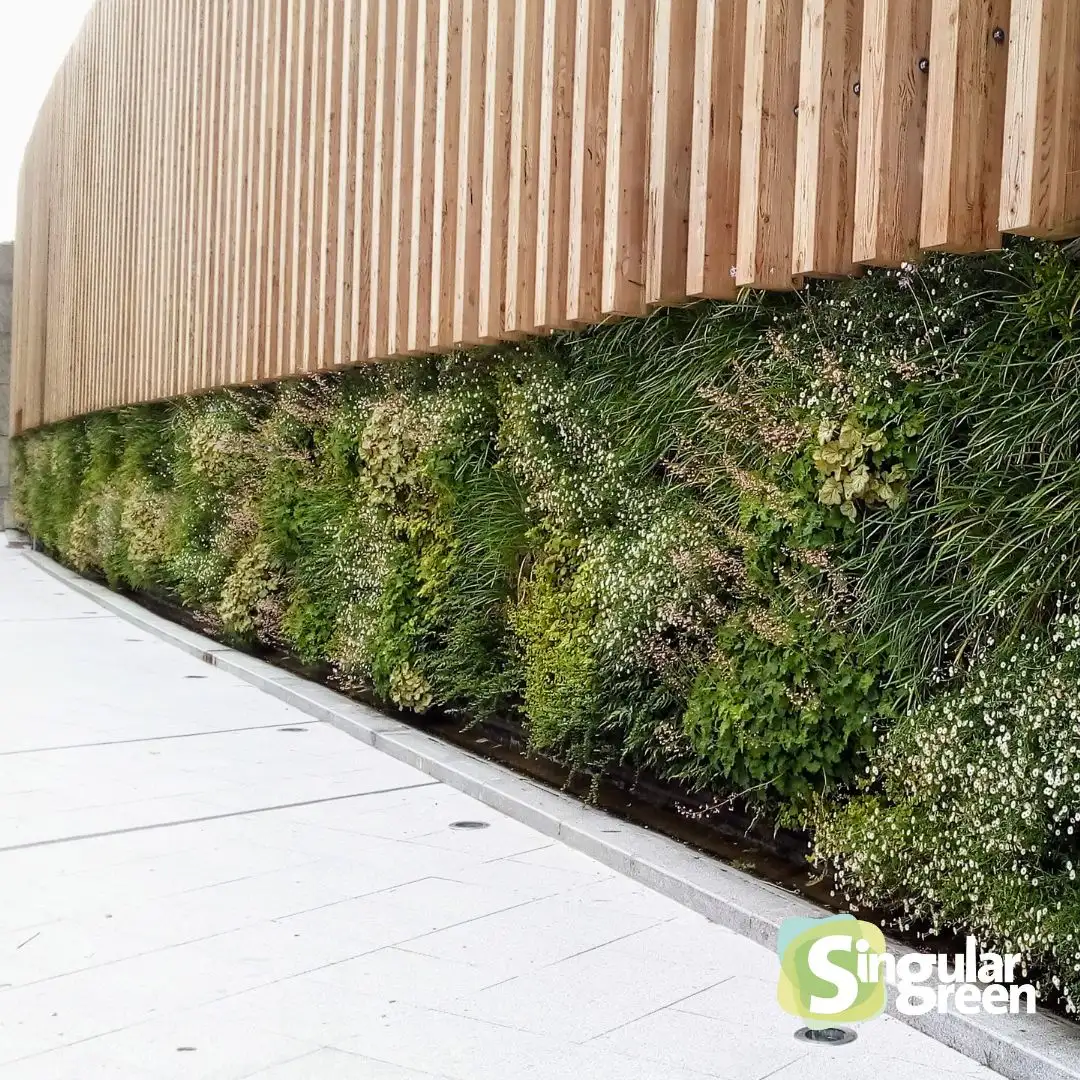Phyto-purification in swimming pools is a natural method of water treatment that uses aquatic plants and micro-organisms to filter and purify water.
Unlike traditional purification systems, which often rely on chemicals and intensive mechanical processes, phyto-purification uses biological processes to remove pollutants and improve water quality.
This approach is not only more environmentally sustainable, but can also be more cost-effective in the long term.
Phyto-purification has evolved over the years, adapting to a variety of needs, from wastewater treatment to the creation of natural swimming pools.
However, it is essential to distinguish between the different types of systems, especially when it comes to water quality and end use.
Types of Phytodepuration Systems
Conventional Natural Pool Systems
Conventional phyto-purification systems for natural pools usually use a biological gravel filter. This filter, approximately 70 cm to one metre deep, is made up of gravels of different diameters that act as a filter medium.
The water passes through these gravels, which enables the biological filtering action. In addition, marsh plants are planted to absorb nutrients and help complete the filtration in a regeneration zone.
This approach is what has traditionally been considered for natural pools.
However, conventional systems have some limitations, such as the possibility of plant roots obstructing the water flow or the accumulation of dirt that can lead to the creation of anaerobic zones, favouring the development of pathogenic bacteria.
Singular Blue: Innovation in the Purification of Natural Swimming Pools
The SingularBlue system, developed by Singular Green, represents a significant innovation in the field of natural pool purification.
Unlike conventional systems, SingularBlue uses submerged plants instead of marsh plants.
These plants not only absorb nutrients from the water better, but also help to oxygenate the water more effectively. In addition, the system uses a much thinner filter thickness of only 10 to 15 cm, which prevents the formation of anaerobic zones and ensures a continuous flow of oxygenated water.
In my experience, as a SingularGreen team professional, I have observed that this approach offers multiple benefits.
The use of reduced thickness and special gravels, which vary according to the pH of the pool water, ensures that the system functions optimally without the need to replace the gravels.
These special gravels act as phosphate binders, fixing the phosphates continuously and preventing them from accumulating, which maintains the transparency of the water.

Differences between Phyto-Purification Systems for Wastewater and Natural Pools
It is important to clarify that the SingularBlue system is not designed for wastewater treatment.
While some phyto-purification systems can be adapted to treat greywater or wastewater, the SingularBlue approach is specific to natural swimming pools, where the water quality must be suitable for bathing, not for drinking or other uses.
To treat wastewater, other purification methods would be required to ensure the removal of pathogens and contaminants at levels safe for reuse or discharge into the environment.
Advantages of Phytodepuration in Natural Pools
Environmental and Economic Benefits
Phyto-purification for natural pools, especially with the SingularBlue system, offers multiple environmental and economic benefits.
By using natural processes and aquatic plants, the need for chemicals and intensive maintenance is reduced. This not only protects the environment, but can also reduce operating costs associated with pool maintenance.
Improved Recreational Water Quality
One of the major benefits of the Singular Blue system is the improvement of water quality, making it suitable for recreational use.
Water treated by this system is clear, free of unpleasant odours and safe for swimming.
This is largely due to the combination of submerged plants and special gravels that optimise the filtration and oxygenation of the water, preventing the proliferation of bacteria and other unwanted micro-organisms.
Key Components of a Phyto-Purification System for Natural Pools
Use of Submerged Plants and their Effectiveness in Purification
Submerged plants play a crucial role in the SingularBlue system. Unlike marsh plants, which are used in conventional systems, submerged plants have a more direct contact with the water, which allows them to absorb nutrients more efficiently and contribute to the oxygenation of the water, a key aspect in maintaining a healthy and safe aquatic environment.
Importance of Filter Thickness and Use of Special Gravels
Filter thickness is another critical component of the SingularBlue system.
A thinner thickness of 10 to 15 cm ensures that the water is always oxygenated, which prevents the formation of oxygen-deprived zones that could harbour pathogenic bacteria. In addition, the gravels used are specifically selected according to the type of water in the pool, which further optimises purification.
Oxygenation and Maintenance of Water Transparency
Continuous oxygenation is essential to maintain water quality in natural pools. In my experience, I have seen how the SingularBlue system, with its unique design, ensures constant oxygenation, which not only improves water clarity, but also helps prevent common problems such as algae and bacteria growth.
Practical Applications of Phyto-Purification in Natural Pools
Example Projects with the SingularBlue System
I have worked on several projects where the SingularBlue system has been successfully implemented. From small pools in private gardens to large resort installations, this system has proven to be effective in a variety of environments, offering a natural purification solution that is both aesthetically pleasing and functional.
Design Flexibility in Natural Pools
One of the great advantages of the SingularBlue system is its design flexibility.
By not depending on large spaces for the installation of filters and marsh plants, it allows greater freedom to design natural pools that integrate harmoniously with the landscape, without compromising the efficiency of the purification.
Maintenance and Optimisation of the SingularBlue System
Simplified Maintenance and Longevity of Materials
The SingularBlue system is not only efficient, but also easy to maintain. Unlike other systems that require frequent replacement or cleaning of filter media, the gravels used in SingularBlue do not need to be changed, which significantly reduces maintenance costs and time.
Tips for Maximising System Efficiency
To maximise the efficiency of the system, it is important to select the right plants and the right gravels according to the specific characteristics of the pool water.
It is also recommended to periodically check the system to ensure that it is functioning properly and that there are no obstructions that could affect the flow of water.
Conclusion
Phyto-purification is an effective and natural technique for maintaining water quality in natural pools, and the SingularBlue system offers an innovative and efficient solution that overcomes many of the limitations of conventional methods.
With simplified maintenance, significant improvement in water quality, and unique design flexibility, the SingularBlue system is ideal for those seeking a sustainable and aesthetically pleasing option for their natural pool.







